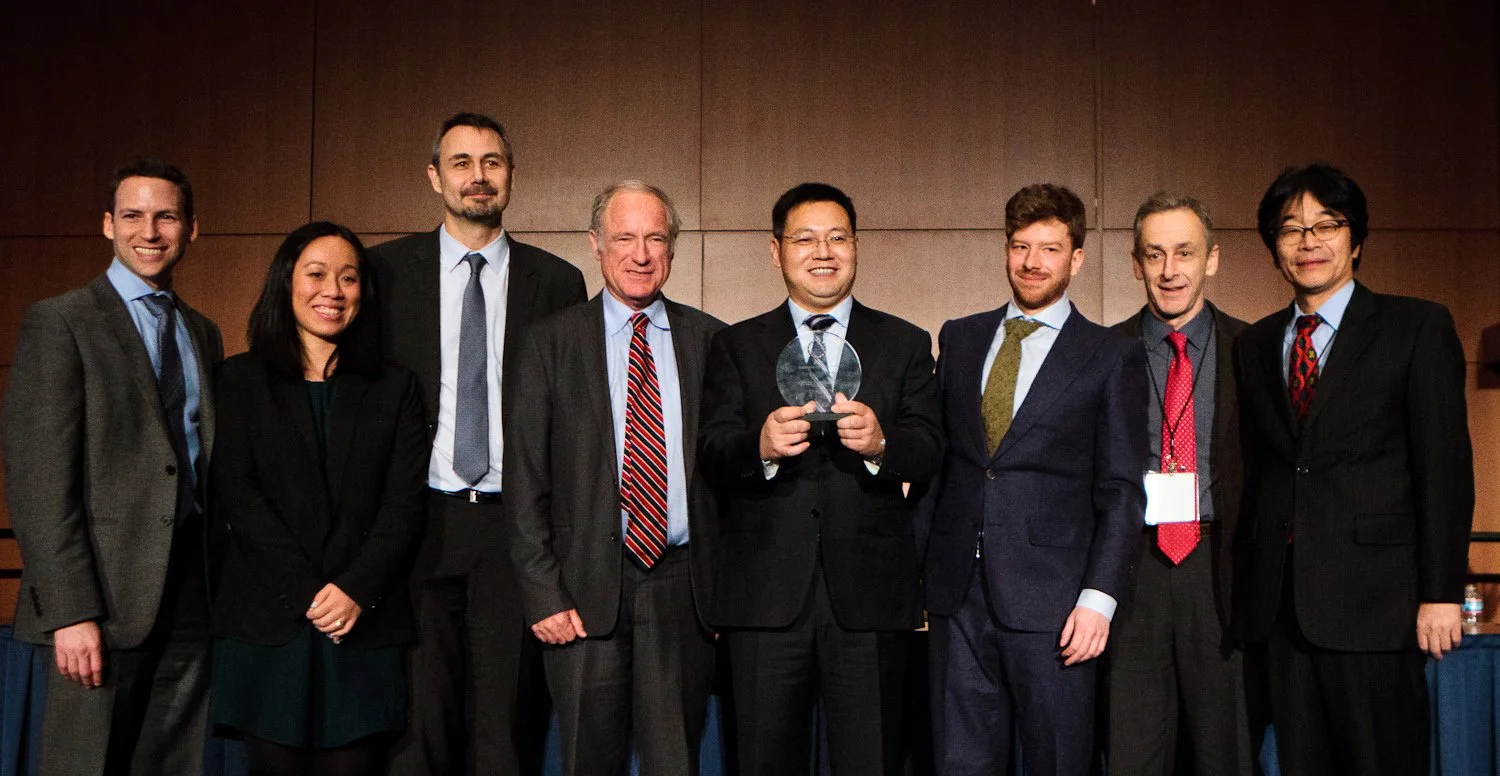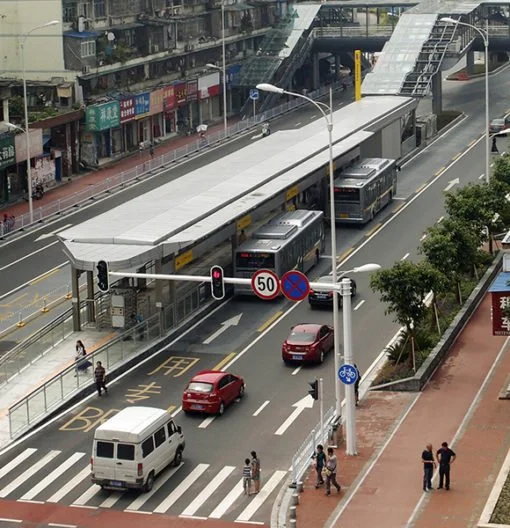2016: Yichang, China
New BRT system, public spaces, parking reform, cycling and pedestrian improvements win Yichang the award.
Yichang, a mid-sized Chinese city located along the Yangtze River, the site of the Three Gorges Dam, is looking to the future with a focus on cycling, pedestrian space, and high-quality mass transport, putting it well on its way to becoming a leader in the region on sustainable transport and development.
Clayton Lane, CEO of the Institute for Transportation and Development Policy, presented Chuanqiang Mao, left, vice mayor of Yichang with the award at a ceremony at the Walter E. Washington Convention Center on Tuesday evening on behalf of the Sustainable Transport Award Committee. The program featured a keynote address from Shin-pei Tsay, Deputy Executive Director of STA partner TransitCenter.
“The economic, environmental, and social challenges for cities are greater now than ever before,” said Shin-pei Tsay. “While it is certainly easier to continue on paths forged in the auto-dependent past, the most successful cities are the ones which reorient themselves not for cars, but for people.”
In 2015, Yichang launched China’s third high quality BRT to open in the last five years, after Guangzhou in 2010 and Lanzhou in 2013. Stretching 20 kilometers along one of the city’s busiest roads, the system serves over 240,000 riders a day on 362 buses, 200 of which are new BRT buses with doors on both sides. The system features a dedicated right of way, off board fare collection, preferential treatment at intersections, and level boarding. Demonstrating strong climate and congestion benefits, preliminary results show that 20 percent of BRT riders previously drove a car or took a taxi. The BRT lanes forms the core of a sustainable urban corridor, anchoring benefits throughout the city.
Along the corridor, new protected bike lanes and pedestrian improvements are making the city safer and more comfortable for active transport users. 30 kilometers of new protected bike lanes, primarily along the BRT corridor, make intermodal transfers easy. In addition, the launch of a new public bike share with 645 bikes and 27 stations is providing more opportunities for residents to start cycling. Along the BRT corridor, 29 intersections have been redesigned with pedestrian safety improvements, and 40 km of sidewalks have been widen and improved to remove obstacles for those on foot.
Yichang also implemented groundbreaking parking reform, with half of the parking spaces along the BRT corridor eliminated and the remainder subject to improved management. The city planted 700 trees along the newly accessible streets, making the city’s public spaces more vibrant and verdant.
Yichang’s experience of implementing rapid, impactful infrastructure to reduce congestion and pollution serves as model for cities throughout China and the region. Thanks to a new, Gold Standard BRT, the launch of a large-scale bike share system, complemented by new bike lanes, as well as pedestrian safety and comfort improvements, Yichang has become a true transit success story.
The 2016 Sustainable Transport Awards also recognized Moscow, Russia and Rosario, Argentina as finalists for their strides in sustainable urban transport.
Click here to learn more about Yichang’s interventions.



